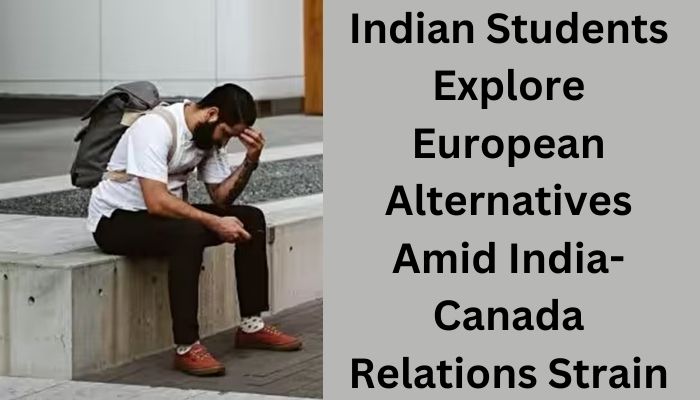As India-Canada relations face challenges following Ottawa’s allegations linking Indian government agents to a murder, Indian students in both countries are grappling with uncertainties about their higher education plans. These strained relations raise security concerns, leading India to advise its nationals in Canada, particularly students, to exercise caution. As a result, students scheduled to commence their academic journeys in January 2024 are apprehensive about increased scrutiny and visa rejections.
Indian students contribute significantly to Canada’s economy. In 2022, over 300,000 Indians pursued higher education in Canada. These international students, primarily from India, contribute to the Canadian economy by paying tuition, fees, and living expenses. In 2021, international students injected USD 21.6 billion into the Canadian economy and supported over 170,000 jobs. A secure and harmonious environment is vital for Canada to sustain its economic growth.
Canada’s immigrant-friendly permanent residency policies have attracted Indians seeking to settle abroad. With 1.4 million people of Indian origin in Canada, constituting 3.7% of the population, and 1.18 lakh Indians obtaining Canada PR in 2022, the Indian diaspora in Canada is substantial.
However, the student visa rejection rate has been steadily climbing in recent years. Despite a surge in Indian students heading to Canada post-Covid, the rejection rate has soared to 40-45%, in contrast to the earlier 15-20%.
Given the evolving geopolitical dynamics and the tension between India and Canada, students are exploring alternative destinations for higher education, particularly in Europe. Nations like Germany, France, Sweden, and Finland are increasingly preferred by Indian students.
Indian students pursuing higher education abroad reached a six-year high in 2022, totaling 7,50,365, according to the education ministry data, and this number is expected to continue growing.
**Germany as a Study Abroad Option:** The number of Indian students in Germany has been on a consistent rise, with Germany hosting 34,134 Indian students last year. Germany’s immigrant-friendly policies offer opportunities to Indians, including skilled workers. It is the largest issuer of the European Union Blue Card in Europe, granting holders the right to move within EU member states and apply for residence permits.
**France as a Study Abroad Option:** France aims to welcome 30,000 Indian alumni by 2030 through a 5-year short-stay Schengen visa. It has also introduced an extended 5-year post-study work visa for Indian students completing their master’s degrees.
These European Union (EU) nations present strong alternatives to Canada for Indian students. The EU and India share a long history of cultural and trade relations. Germany is India’s largest trading partner in Europe, and France is India’s second-largest trading partner in Europe. Many EU nations, including Germany and France, subsidize higher education in public institutions, offering globally-recognized degrees at a more affordable cost. These degrees also provide access to a free labor market, enhancing career prospects for graduates.
With these opportunities in European destinations, Indian students have a wealth of choices for pursuing education abroad and building successful careers with foreign degrees.

